Review: Household Slime Mold
Hello! If you’re still doing reviews right now, could you consider reviewing my webcomic, Household Slime Mold? I just finished the finished the first chapter which is 71 pages long, and would greatly appreciate a review!
Thank you for your time! c:
Reviewing a webcomic? That’s not something I’ve done for a looooong time.
Okay, cool.
In contrast with my usual “live commentary” approach, I actually went ahead and read the whole thing first. There’s a lot good, and one thing bad. And though I’m going to spend a lot of time on the one thing bad, let me state upfront that your webcomic is cute and I like it.
On the good, your characters have cute designs
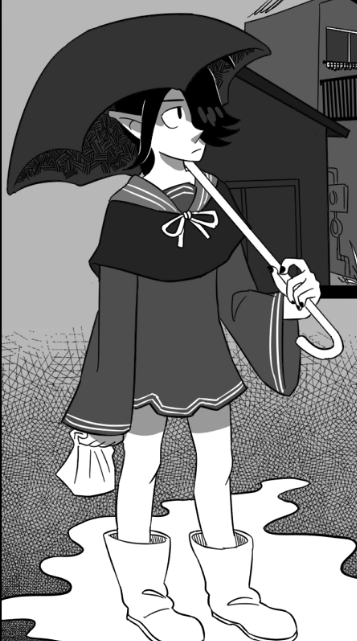
And strongly defined personalities. The story of chapter 1 (On a delivery, Mildew meets a magic teacher and tries to get him to train her. Though he’s uninterested, she wins him over by showcasing her magical abilities in a crisis) is logical, and it sets up the major characters pretty well. Your art is quite nice, and the magical abilities displayed are interesting and non-generic. There’s a lot to like about this comic, and I enjoyed reading it.
But holy shit, chapter one is seventy-one pages.
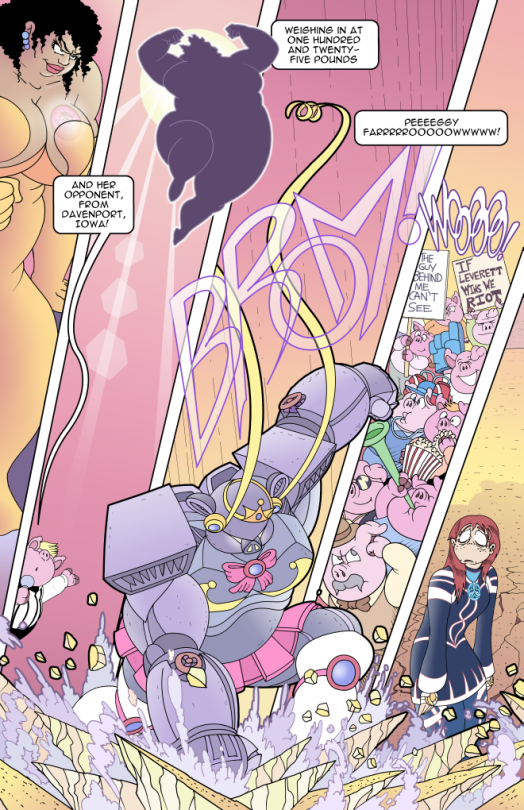
For comparison, by page 71 of Legend of the Hare (itself a pacing nightmare!), Jill had gone to the rabbit world, rejected it, gone home, did a rock show, got guilted about rejecting the rabbit world, slept with Riley, got dumped by Riley, was cut away from for a long, ultimately pointless party scene, returned to the rabbit world, and was beginning her first major boss fight against a villain I spent a lot of time setting up.
Saffron and Sage’s first chapter is ten pages, though it’s more of a pre-opening-credits scene (and contains a jarring jump cut), so maybe that’s not fair. Saffron’s second chapter is slower and does more setup, and is closer to 15-20 pages.

But, to pick a famous example, in Amazing Fantasy #15, Peter Parker’s Aunt May and Uncle Ben, love of science, romantic woes, school bully, and weird desire for vengeance (?) were all established on page 2. By page 10 he’d been bitten by a radioactive spider, developed super-powers, invented web slingers, become a pro wrestler, made his Spider-man outfit, let a robber get away, discovered the death of his uncle Ben, and chased down the burgler. By page 11 he’d discovered the identity of the burgler and learned with great power etc. And this includes a recap (!) halfway through the story.
Now, granted, not every comic needs to have Golden Age-era pacing
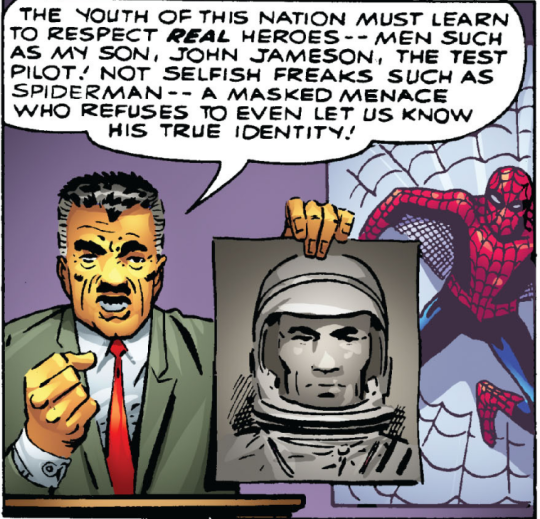
(Though we could all stand to have more characters holding giant photographs for visual flair)
But 71 pages is a lot. It’s the first four chapters of Gunnerkrigg Court, and long enough for Sleepless Domain to have its big twist.

And while there’s no point where I was reading your comic that I was waiting for something to happen, there are little speed bumps all over the place. Like, the first three panels here. What do they actually add to the comic? Pen wants Mildew to do something and she’s not into it? Panels 4-5 establish that perfectly well.

Oh okay, I didn’t get that.
Like, the first page is a bunch of establishing spots, so you’re intentionally sacrificing storytelling efficiency to set a mood; that’s fine.
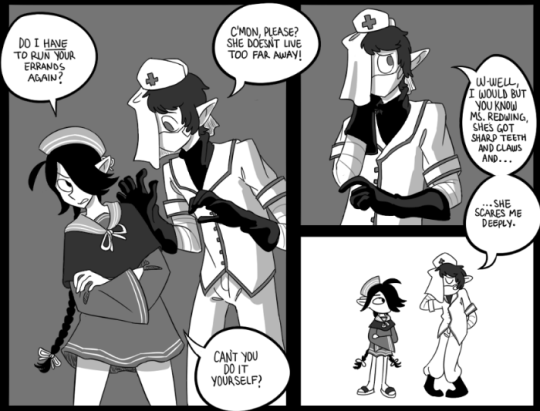
But there’s a lot of redundant panels, like this first one here, that tells us nothing we don’t already know (note also that we’re told she “doesn’t live too far away” here, but then are told AGAIN that she’s only fifteen minutes away). It’s realistic for people to be redundant when having an argument, but characters doing it hurts your pacing.
I don’t want to do a full panel-by-panel audit of your comic, but I’d like you to take a look at your script for chapter 2, and ask yourself how much you need all of this, or if there’s a way to tell the plot points more efficiently, which lets you make the chapter shorter and/or use the extra time for more character beats. See if you can’t cut five pages down into four.
One thing I did that helped a lot with this is writing down all the things that would happen on a page before writing the page itself. Often, I’d hit my “plot quota” halfway through the page, and could work another plot item in as well. This got me a lot better at getting my page count down, since I knew where I was going before I started writing. Give it a try!
And, again, don’t read this long essay as me ragging on your comic. It does a lot good, and it could be a really great comic if you could get the pacing under control.

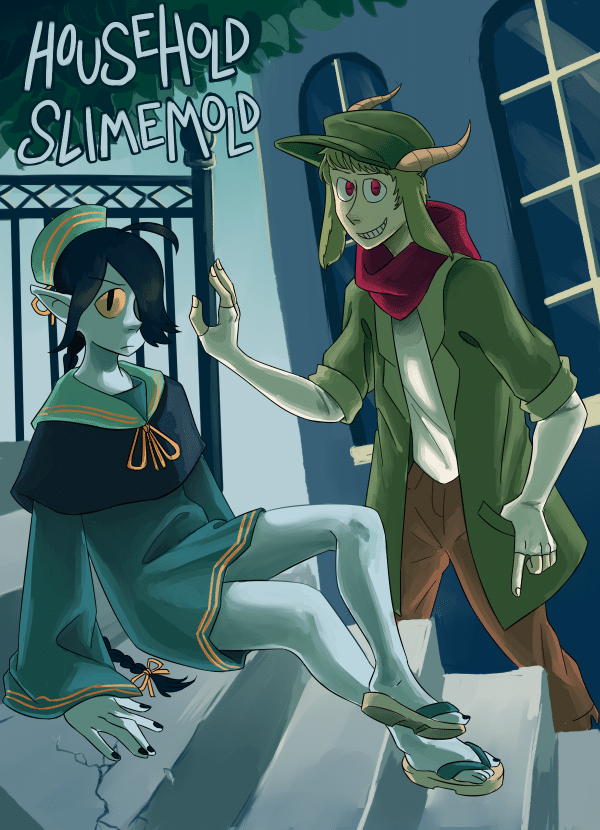
Discussion ¬